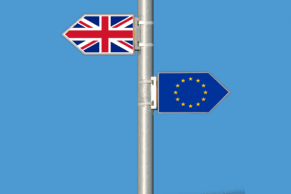Commission advances work for obtaining a negotiation mandate
https://www.stefanscheuer.eu/wp-content/themes/osmosis/images/empty/thumbnail.jpg 150 150 ioana bere ioana bere https://secure.gravatar.com/avatar/2f1488215f0e5e2381f544cefcef2dc7?s=96&d=mm&r=g
(28 November 2019) The Commission plans to hold technical working groups with Member States in January, prior to the UK’s exit on 31 January and before trade talks can begin, in order to advance the preparation for obtaining its negotiation mandate. The European Commission has only 11 months to finalise a trade deal with the UK before the transition period ends and the backstop set out in the Brexit deal kicks in. Despite the fact trade negotiations typically last for several years, Boris Johnson has committed not to extend the transition period beyond 2020 in the Conservative manifesto for the upcoming election (12th December).



